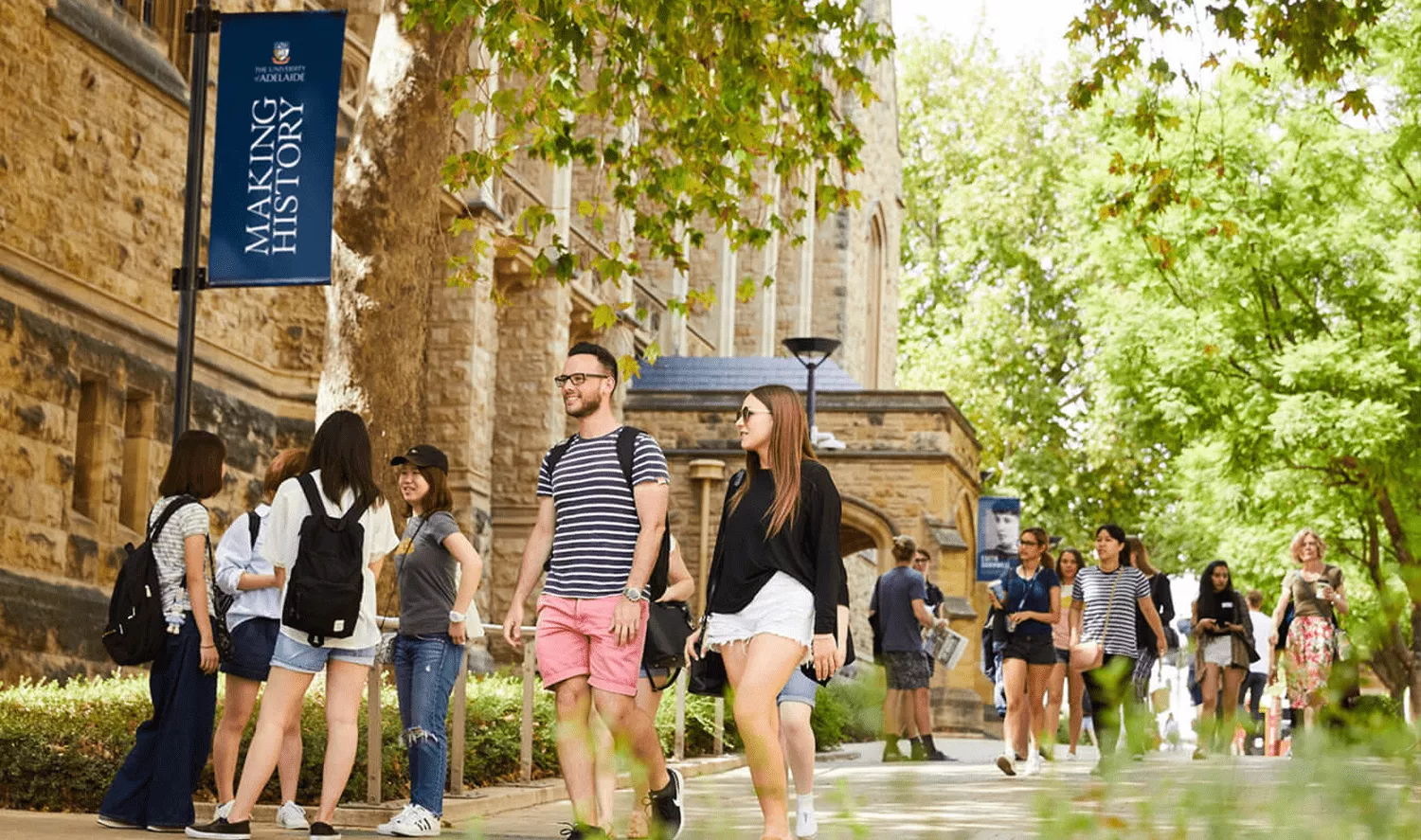How the University of Adelaide creates a sense of belonging for its students
Measures put in place to remedy the impact of COVID on the student experience have proved to have more long term value in helping students succeed at the University of Adelaide
Creating connections on a remote campus
Students want to feel like they belong to a community, whether that’s online or on campus, and their feedback showed us there were gaps in how that need was being addressed.
This was particularly the case on our Roseworthy campus, a major centre of animal and veterinary science research located on a large property about 50km north of Adelaide.
First year vet science students usually spend one day a week at Roseworthy for specialist courses before transitioning there full time. It could be quite isolating with not enough to help them feel connected to the campus.
So last year we sat down with YouX (the University of Adelaide student union) and AU Sport to discuss how they could best allocate the funding we provide them to help address this issue. Usually we give year by year funding, but this time we made a three year agreement to put in place a more comprehensive long term plan. The result has been an annual event cycle that ensures a much greater presence at Roseworthy of both sport and social events.
Download our ebook: 6 ways Australian universities are stopping student attrition
We’ve also extended the library opening hours there so students have a safe place to congregate and study along with access to computers and reliable internet. And we understand that for many students, the library isn’t just a place to read and research but a familiar place to connect safely with other students, so making it accessible has been extremely important.
While providing specialised services is a challenge for any non city-based campus, we’ve been able to make some counselling services available at Roseworthy and supplement them with online services. And digital access to the writing and maths learning centres as well as an external support and feedback service we make available to our students means our Roseworthy students don’t miss out on critical learning support.
Designing a student hub that prioritises safety
The library plays a similarly important role on our main campus and we’ve put almost all student services in and around the library. The student hub area flows from the library across multiple levels and includes the Ask Adelaide service – first point of call for any student questions – and the Ask Library service.
“At the maths learning centre… just over 800 individual students from first years to PhDs made drop in visits – 3000 visits in total across the first half of this year. This is a 10% increase on the 2021 figures.”
Professor Jennie Shaw, Deputy Vice-Chancellor and Vice President (Academic), University of Adelaide
In response to student feedback we’ve also moved Campus Security to the student hub on main campus. This has been a very popular decision with staff and students who feel safer after hours on campus with security that is highly visible and easy to access. And in the event of critical student incidents, campus security has been available within minutes.
Providing support for students at all levels
Part of our post-pandemic strategy has been to provide first year style academic support to students across all years. This has involved a concentrated effort to encourage all students to access the Maths Learning Centre and the Writing Centre and happily we’ve seen this reflected in increased usage.
At the Maths Learning Centre for example, just over 800 individual students from first years to PhDs, made drop in visits – 3000 visits in total across the first half of this year. This is a 10% increase on the 2021 drop-in/online figures.
The external feedback and support service that we make available to our students has proved an excellent complement to our learning centres. It picks up from around 3pm to midnight and on the weekends, and we find that our internal learning centres and this external service often cross refer. Student feedback indicates this works very well and another measure of success is that our maths staff say it works really well at capturing most students when they need assistance. It’s great to see that students don’t feel there’s a stigma to using these support services.
Creating pathways of belonging
We were so happy to see our secondary schools Indigenous STEM academy return for the first time since COVID with visiting student numbers back to pre-pandemic levels. Pre-pandemic we would see almost all those students eventually flow through to university so it’s extremely important to get these high school students on campus so they can see they have access to staff and facilities and know that it’s a place for them.
Our early entry initiative was a COVID measure that allowed students to apply for a university position based on their Year 11 results to encourage students not to give up on the possibility of higher education even if they’d had a couple of rough years.
Of around 2,000 applications we made about 1,400 offers and our last round for intake under the current scheme will be next year. Of the 2022 intake, only 15% of participants gained entry based purely on their Year 11 results. A number of these students were from regional and/or lower socio economic backgrounds. But, interestingly, it was that small cohort with the lower GPA who went on to engage more with student support services and whose retention rate tended to be higher than those who’d achieved the required ATAR. We recognise there could be several reasons for this but acknowledge that it’s a noteworthy finding which may indicate a successor program could be worthwhile.
Making compelling contributions
Involving students in the design of university initiatives has been both valuable for the students and the initiatives.
For example, students have codesigned and tested our updated academic integrity measures which have been described as sector-leading by external reviewers. They were recently promoted over Academic Integrity Week in fun and accessible ways that encouraged students to complete our academic integrity online modules and even to become ambassadors.
While student involvement can take some time, the results make it well worth the effort and involving students in educating other students is a powerful model for other university programs.






